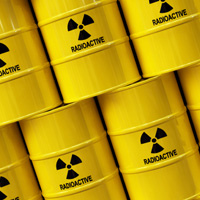-
Grants
40
-
Total Awarded
$9,279,798
-
Years
1981 - 2024
-
Categories
Grants
The Academy of Arts and Sciences is a nonprofit organization and learned/honorary society that brings together leaders in the arts, sciences, and humanities to promote interdisciplinary collaboration and advance knowledge for the public good. The Academy’s key beneficiaries include scholars, artists, policymakers, and the broader community, as it fosters dialogue and innovation across disciplines. Its mission is to engage with pressing societal challenges through research, public discourse, and educational initiatives, aiming to enhance understanding and inspire action. Success for the Academy is seen in its ability to influence policy, enrich cultural life, and support the advancement of knowledge that benefits society at large.
Founded in 1780, the American Academy of Arts and Sciences (AAAS) is an independent policy research center that conducts multidisciplinary studies of complex and emerging problems. This award allows AAAS to develop an implementation plan for the interim multi-lateral fuel storage facility it conceptualized through the previous award. AAAS, through its Global Nuclear Future Initiative, develops a legal framework for the facility, and consults with policymakers in Asia, particularly South Korea, Japan, and Taiwan, and the United States to encourage support for, and ultimate adoption of, the framework.
Founded in 1780, the American Academy of Arts and Sciences (the Academy) is an independent policy research center that conducts multidisciplinary studies of complex and emerging problems. This award supports a multidisciplinary study group on new ethical dilemmas arising from the intersection of contemporary political developments and changes in military technology, including the use of drones and autonomous weapons systems that operate independently of human control and make complex decisions about how to seek, identify, and attack targets. The project addresses the legal, moral and policy concerns that will help shape the debate about these weapons, which are likely to be in regular use within the next decade. The project’s widely disseminated analyses and recommendations inform policymakers, military planners, and human rights organizations, and contribute to advancing scholarship and training on both the changing nature of war and how technology can contribute to conflict prevention. If successful, the project will help to build a common understanding of autonomous weapons systems, and ensure that policy makers are well informed about the implications of these technologies. Award funds will be used primarily for staff costs, consultants, and meeting expenses.
Founded in 1780, the American Academy of Arts and Sciences is an independent policy research center that conducts multidisciplinary studies of complex and emerging problems. The Academy proposes a study to consider limitations in U.S. policy-making in science and technology. Currently, the process of policy development is dominated by short-term political and economic considerations. Furthermore, although many thoughtful and pragmatic recommendations are offered by leading policy research centers, all too often these ideas are not translated into action. The Academy will determine whether a mechanism is needed for advancing some of these recommendations over time and across administrations.
The American Academy of Arts and Sciences is an independent, nonpartisan policy research center with fifty years’ experience in arms control and security. This grant supports Phase II of the Global Nuclear Future Initiative, which brings together key players from the global nuclear community - engineers, social scientists, industry leaders and nonproliferation experts to address security risks associated with the evolving nuclear landscape. It will develop strategies to promoting a new, regional approach to the problem of storing spent fuel in nuclear-aspirant nations in the Middle East and Southeast Asia. Funds will be used for conferences, meetings, publications, office expenses, travel and salaries.
Founded in 1780, the American Academy of Arts and Sciences is an independent policy research center that conducts multidisciplinary studies of complex and emerging problems. This project falls under the Academy’s Global Nuclear Future (GNF) Initiative, which brings together key players from the global nuclear community to address the security risks associated with the evolving civilian nuclear energy landscape. The grant supports work to address the susceptibility of nuclear facilities and industries to insider threats. The Academy will publish case studies on how diverse industries deal with insider threat problems, and engage policymakers worldwide to apply best practices to nuclear security facilities.
To support research and public education on the International Criminal Court and U.S. national security.
To support research and public education on the International Criminal Court and U.S. national security.
To support program development on the role of multilateral institutions and organizations in providing peace and security (over three years).
To support strategic planning.
To support the study project The Dispersed and Stratified Metropolis.
To support a conference on international trade in light weapons.
To explore and develop projects of the Committee on International Security Studies (over three years).
To support a conference on norms of justified intervention, "Collective Responses to Regional Cases: The Case of Latin America and the Caribbean," co-sponsored with the Carter Center at Emory University.
To support a program of research and education to improve debate and public policy regarding children in the United States.
To support the project Emerging Norms of Justified Intervention.
To support the conference "The Regional Problems of Environmental Protection: A Comparative Analysis."
To support a fundraising campaign to assist scientific and engineering researchers and institutes in the former Soviet Union.
To support the project Developing a Cooperative Security Regime.
To support a planning workshop for the project Reducing Domestic Sources of International Conflict.
To support conferences addressing the Anti-Ballistic Missile Treaty review.
To support a conference on environmental protection institutions in the United States and the Soviet Union.
To support a project on research resources redeployment.
To support a planning meeting for the third international Bohr conference on global issues.
To support the conference and publication "The Genetic Revolution: Scientific Prospects and Public Perceptions."
To support the Committee on International Security's project for scholars and policy analysts, Emerging Issues in International Security, in collaboration with the African Academy of Sciences, the Soviet Academy of Sciences, the Chinese Academy of Social Sciences, et al. (over three years).
To support the Committee on International Security, in collaboration with the Lawyers Alliance for Nuclear Arms Control, for the policy study Managing the Anti-Ballistic Missile Treaty Regime, conducted with a parallel study by Soviet scientists.
To support the Committee on International Security, for the U.S. contribution to the U.S.-U.S.S.R.-European study on arms control agreements and verification issues.
To support the U.S. Pugwash Committee, for U.S. participation in international workshops and symposia, the Pugwash Annual Conference, and the International Pugwash Council (over three years).
To support U.S. participation in the International Institute of Applied Systems Analysis (over two years).
To support an issue of "Daedalus" examining the range of issues produced by the AIDS epidemic.
For a series of workshops on conventional forces involving Europeans and Americans.
To support a program of public policy studies (over five years).
To support U.S. membership in the International Institute for Applied Systems Analysis (over two years).
To support a simulcast (in Moscow, Copenhagen, and Cambridge) of the the Niels Bohr centennial.
To support collaboration among researchers from different fields on problems of international security, to evaluate the present and potential contributions to public understanding of security issues, and to explore new connections and interactions among its constituencies (over three years).
To support U.S. participation in the International Institute for Applied Systems Analysis (over two years).
To support the European Security Study.
To support the European Security Study.
In support of general operations.






